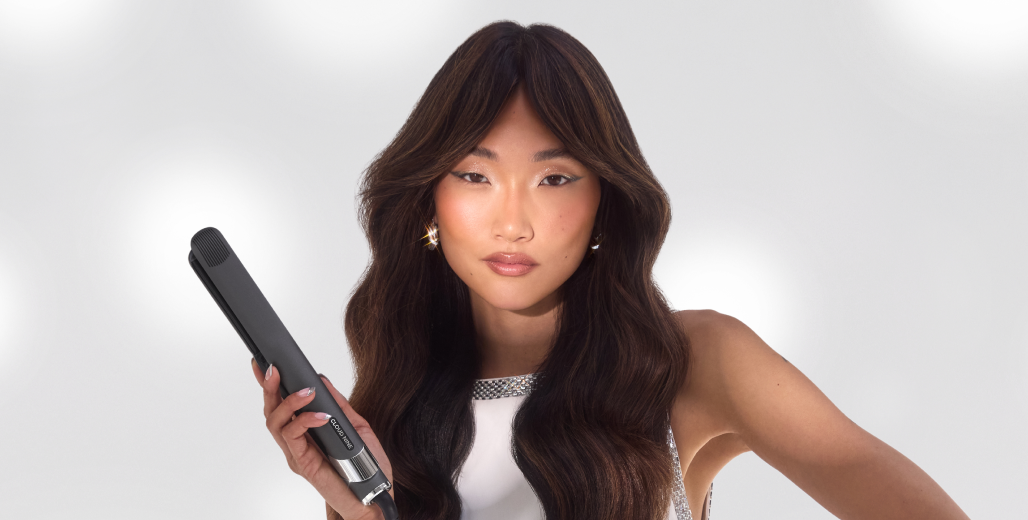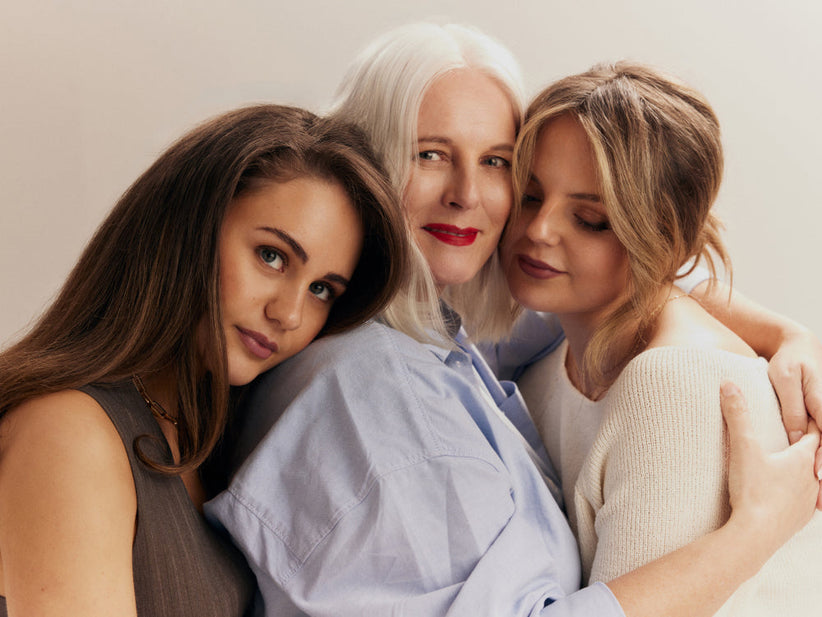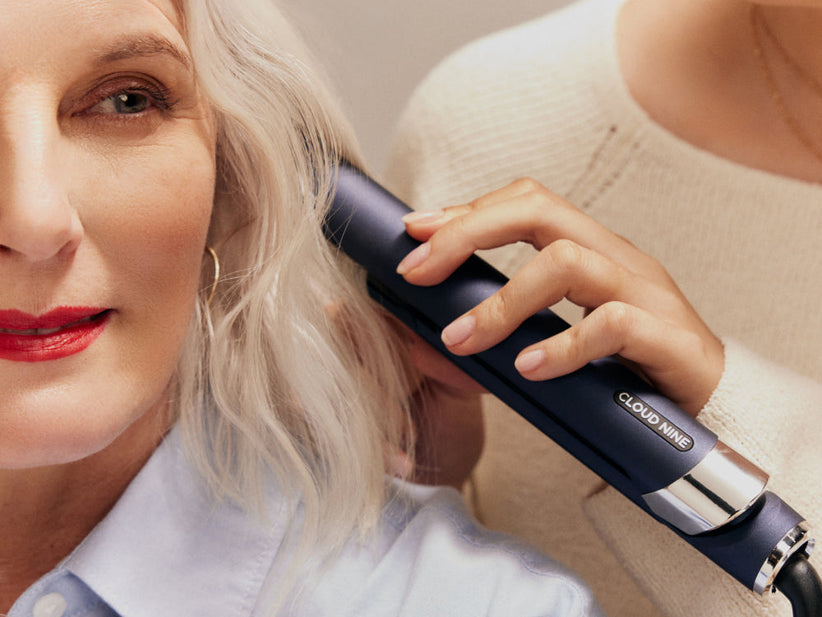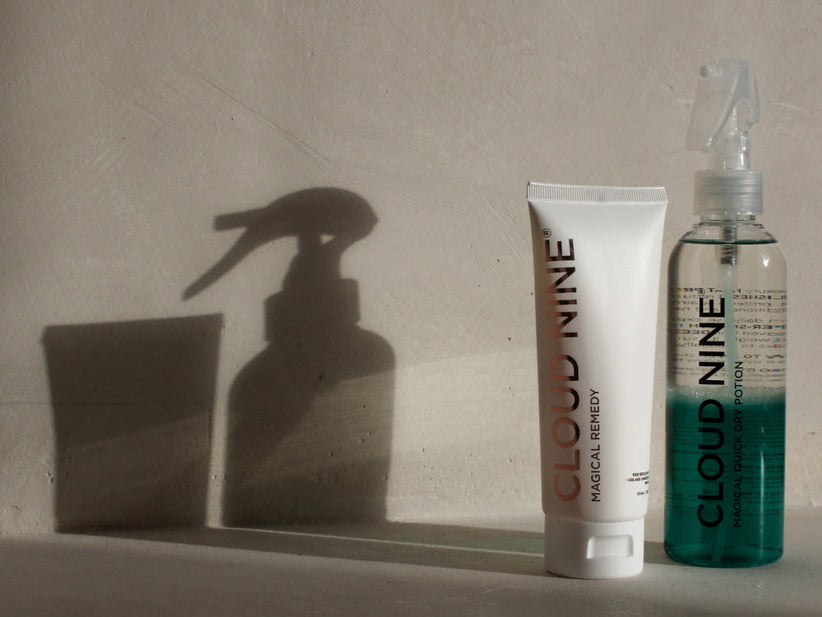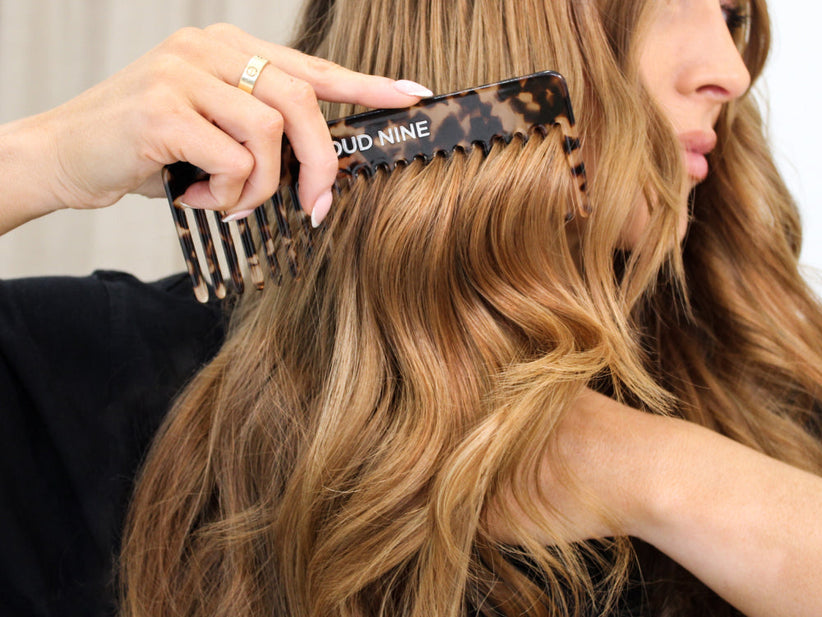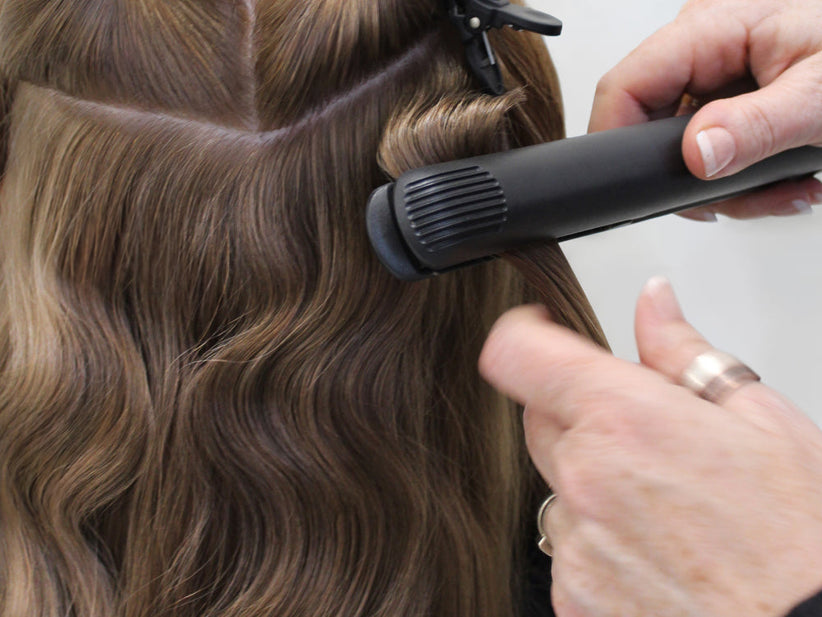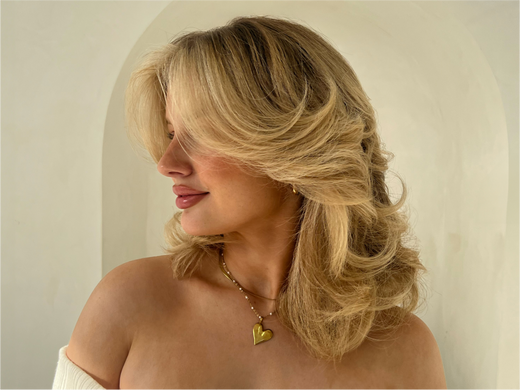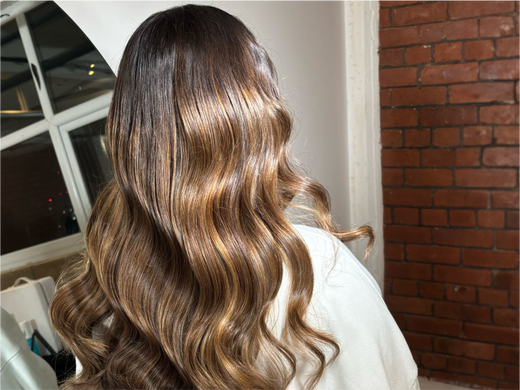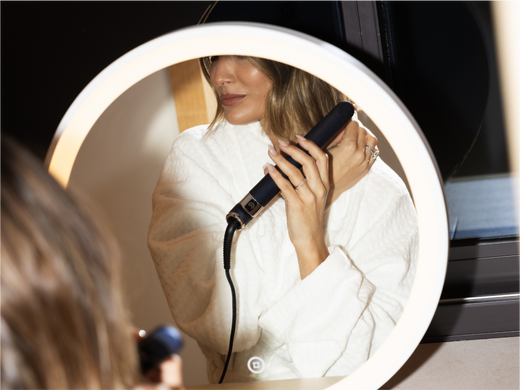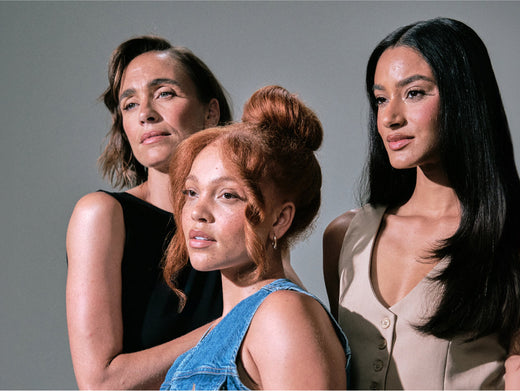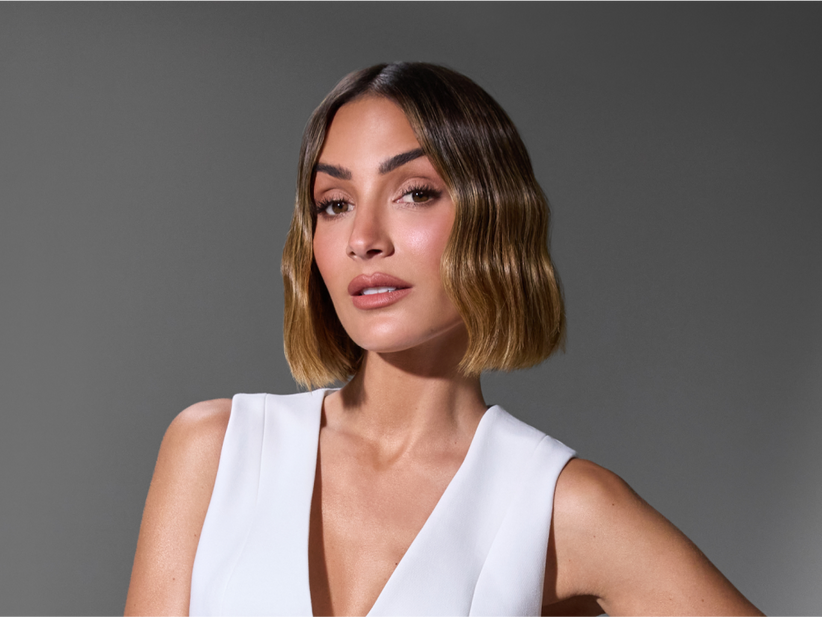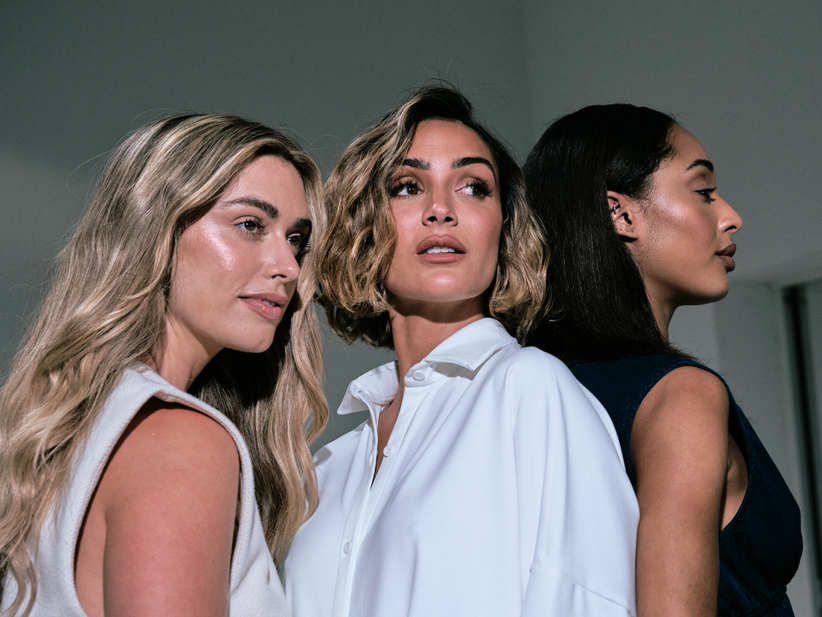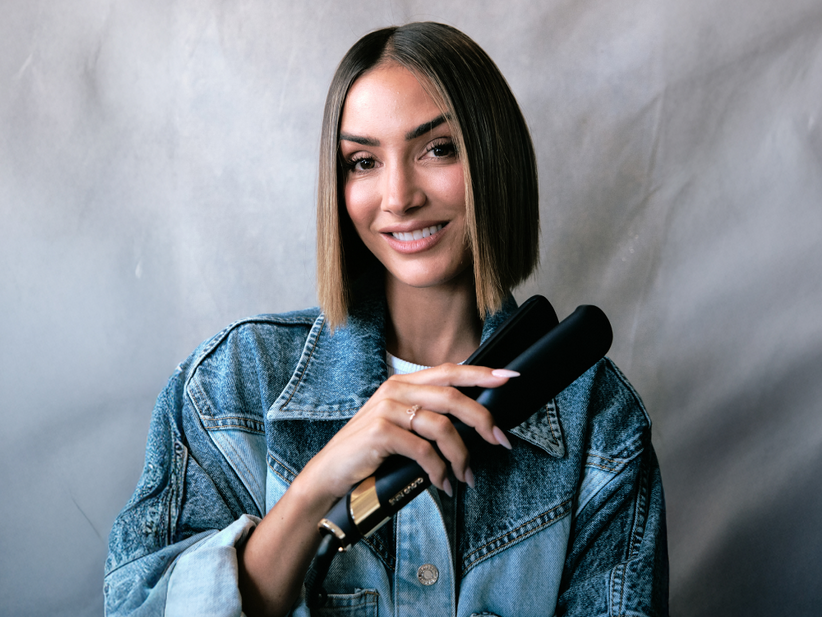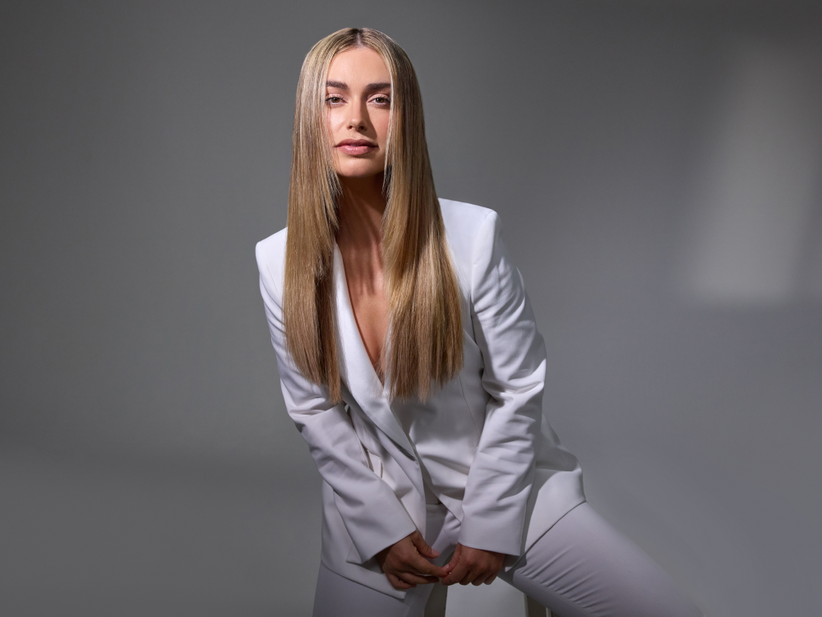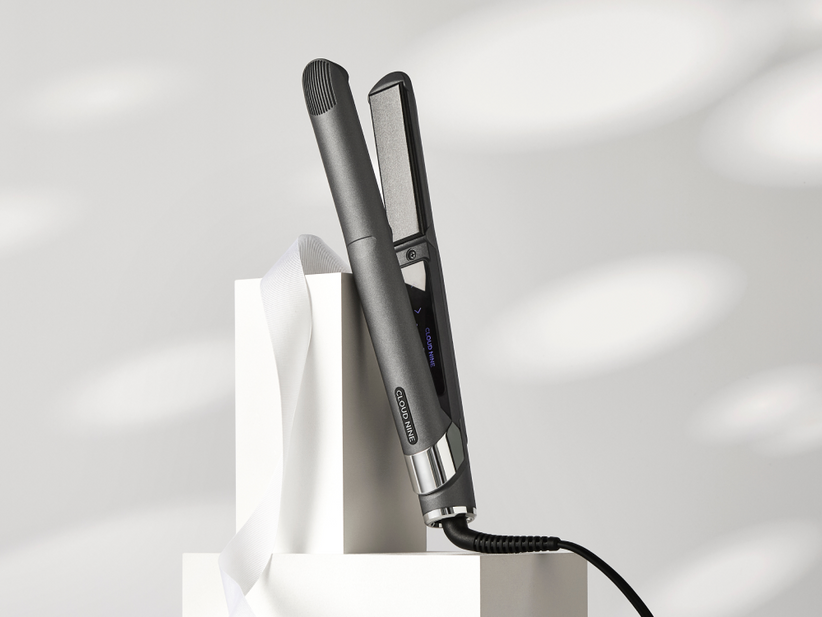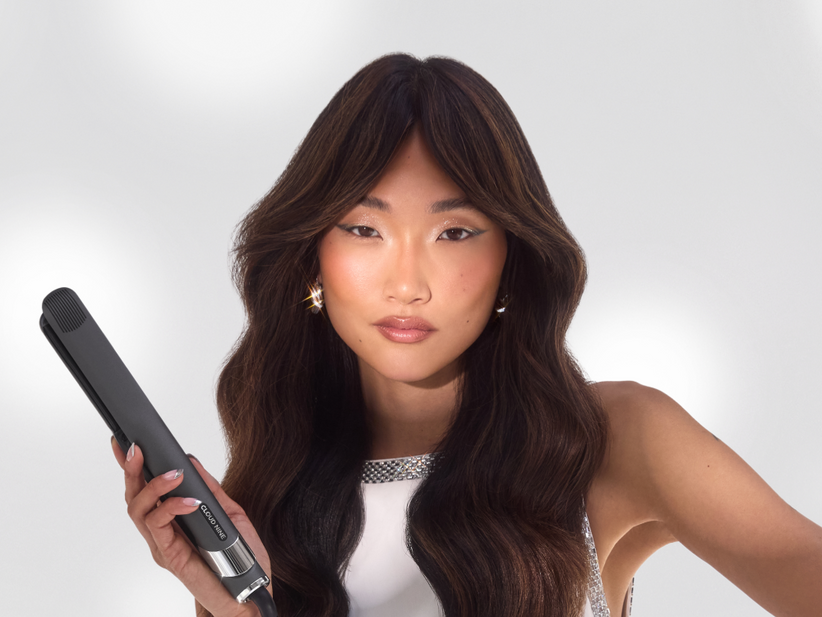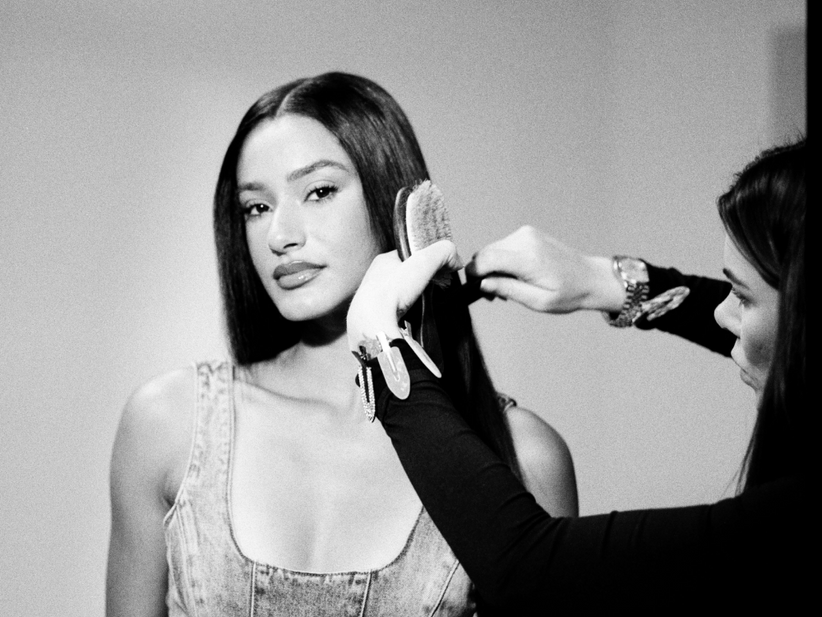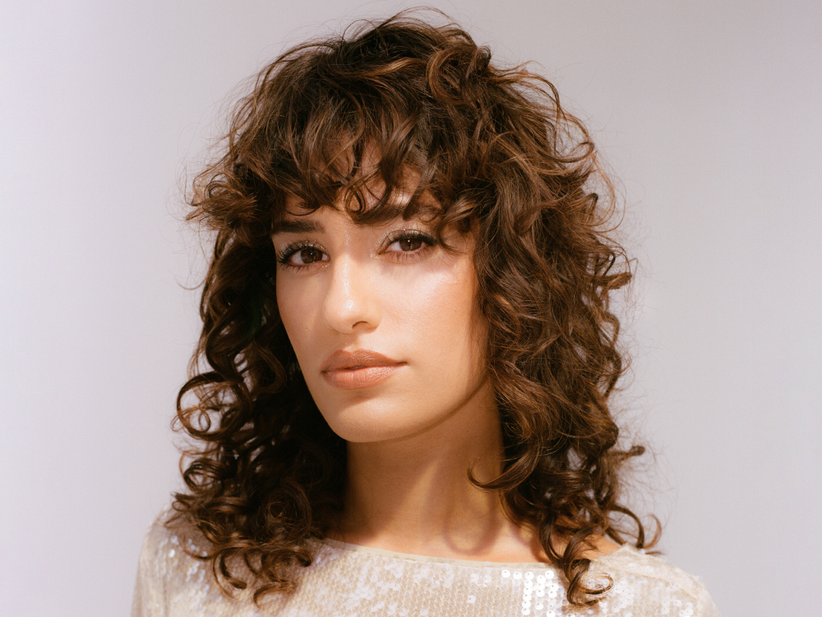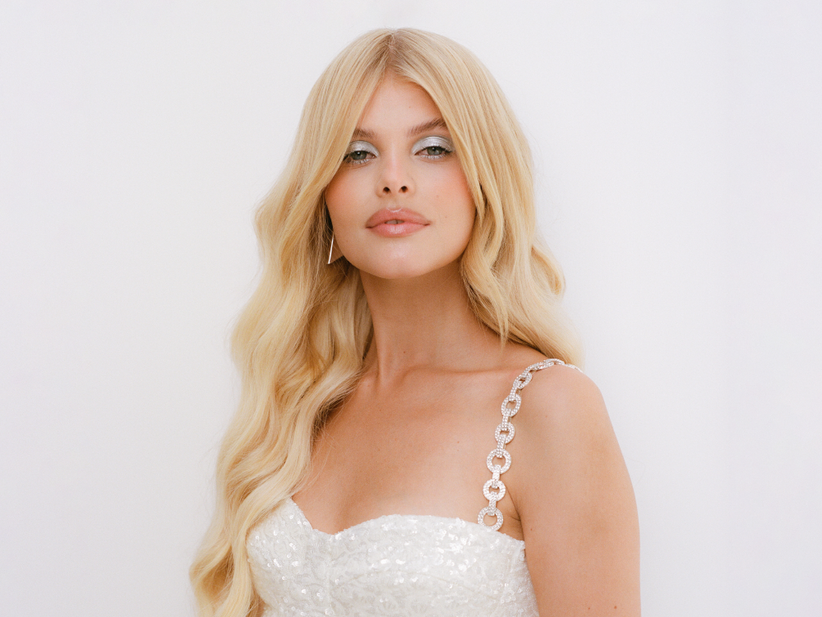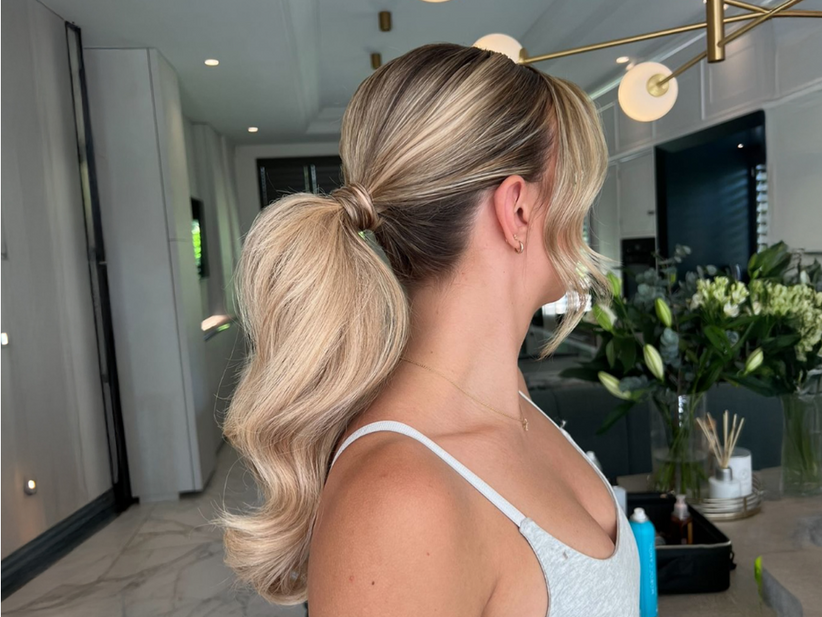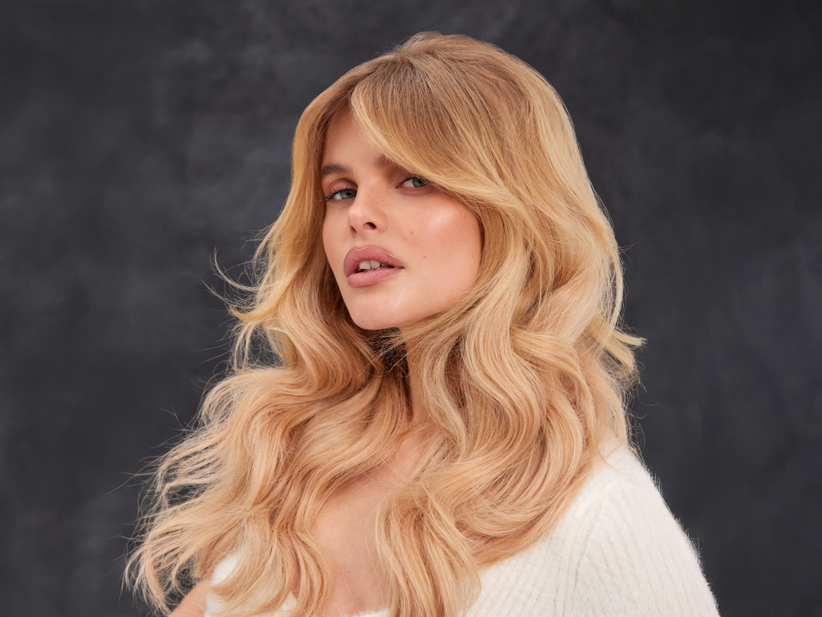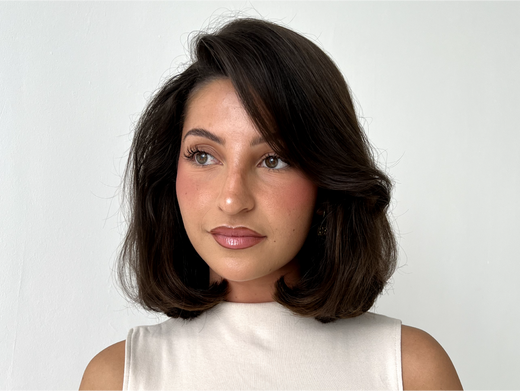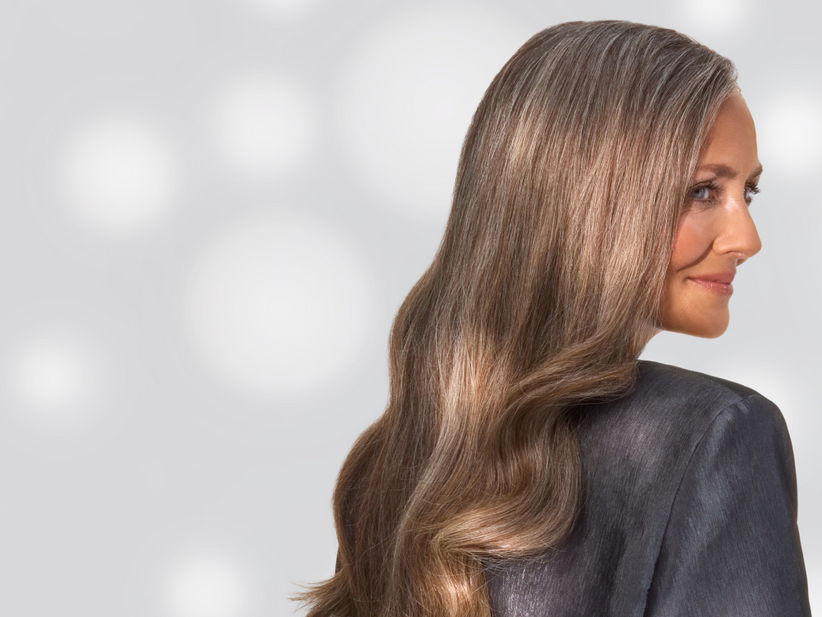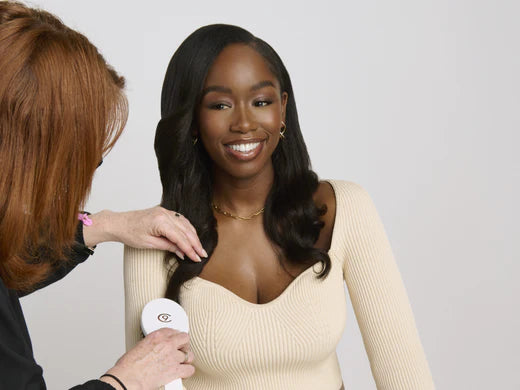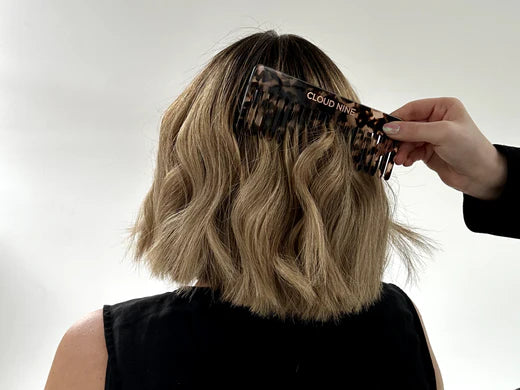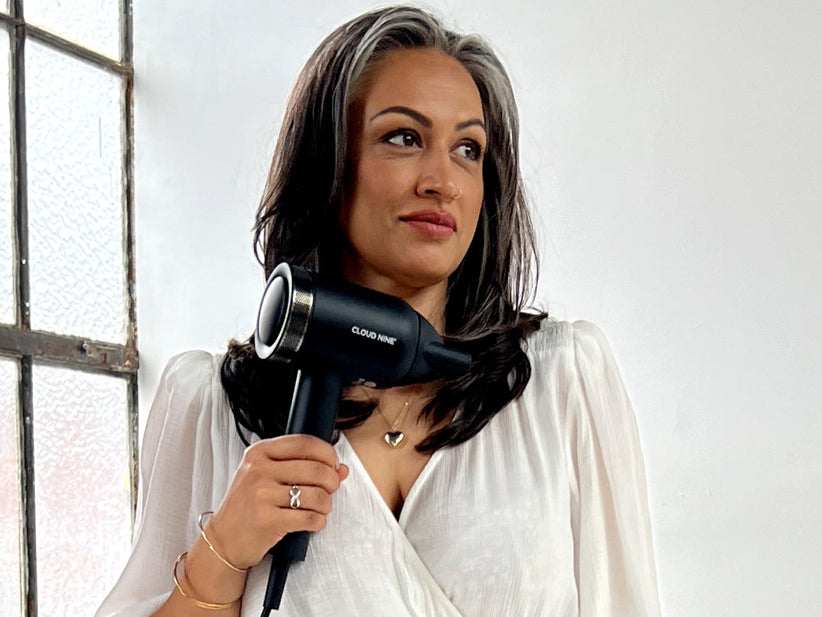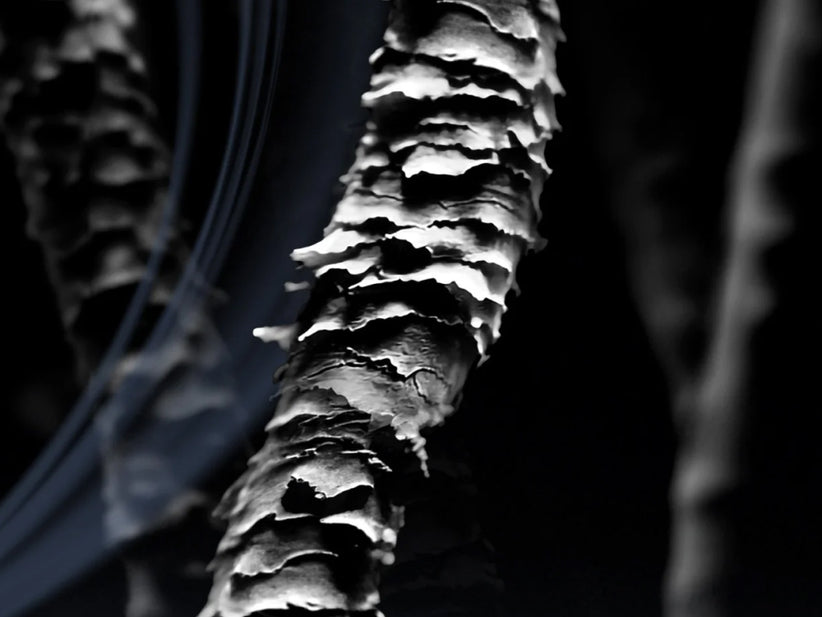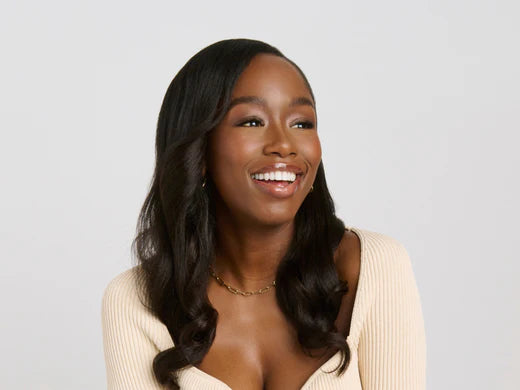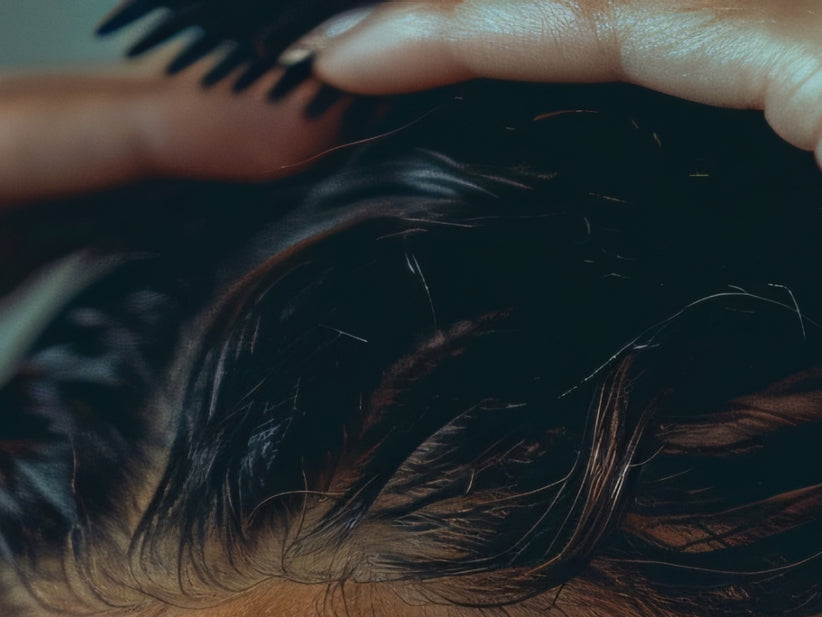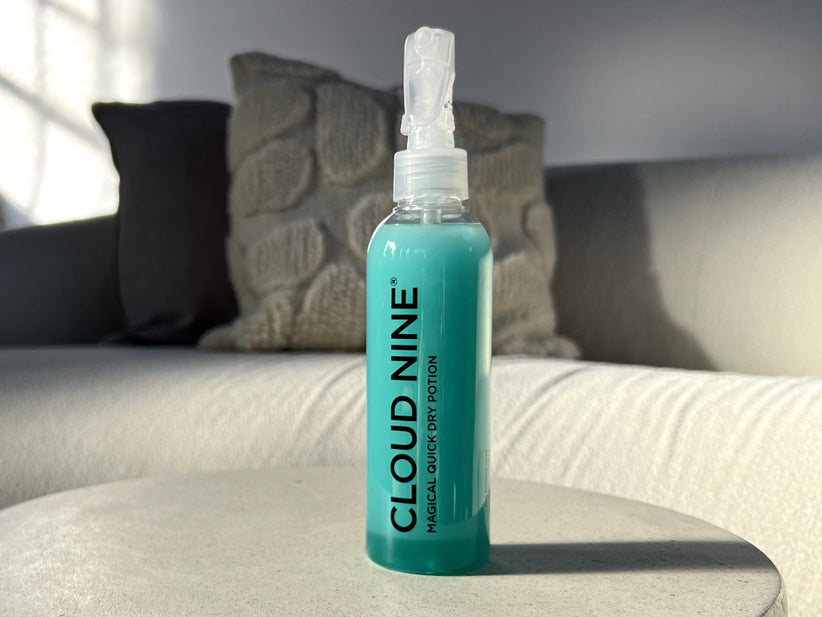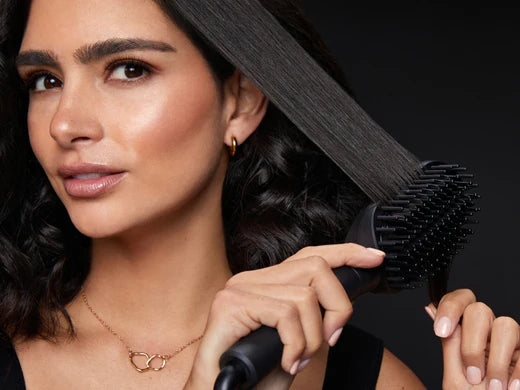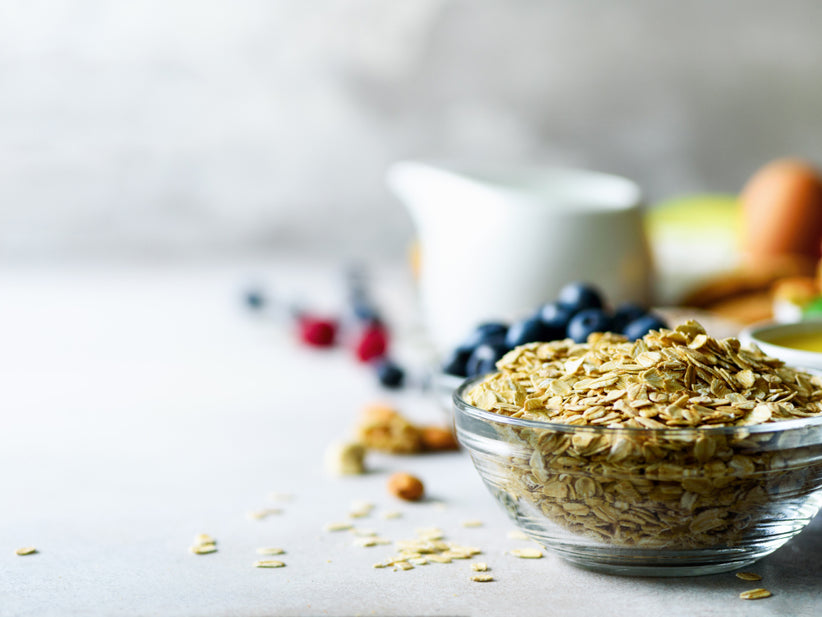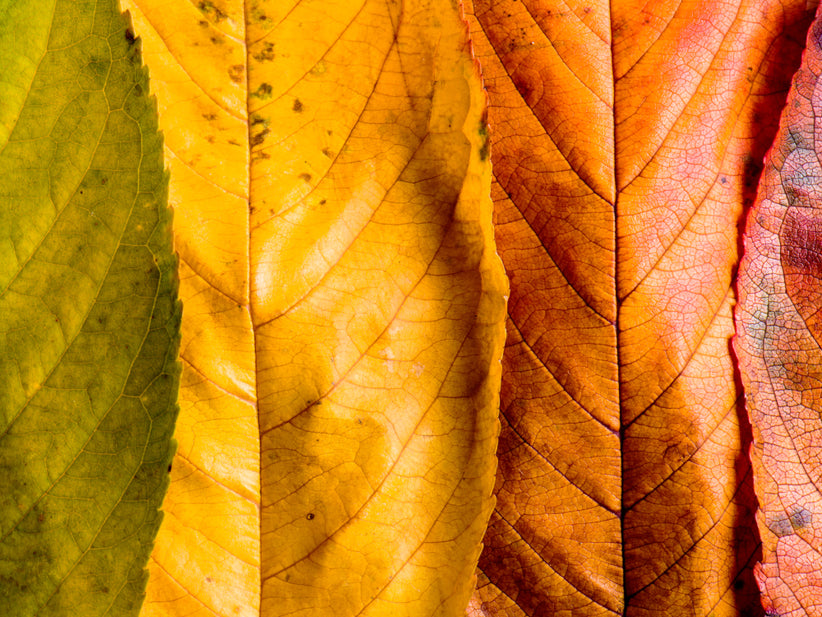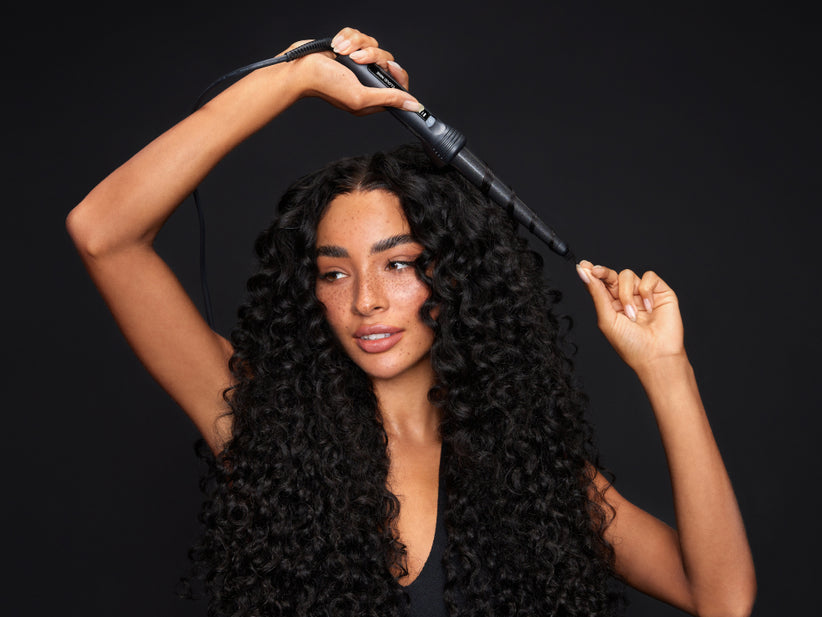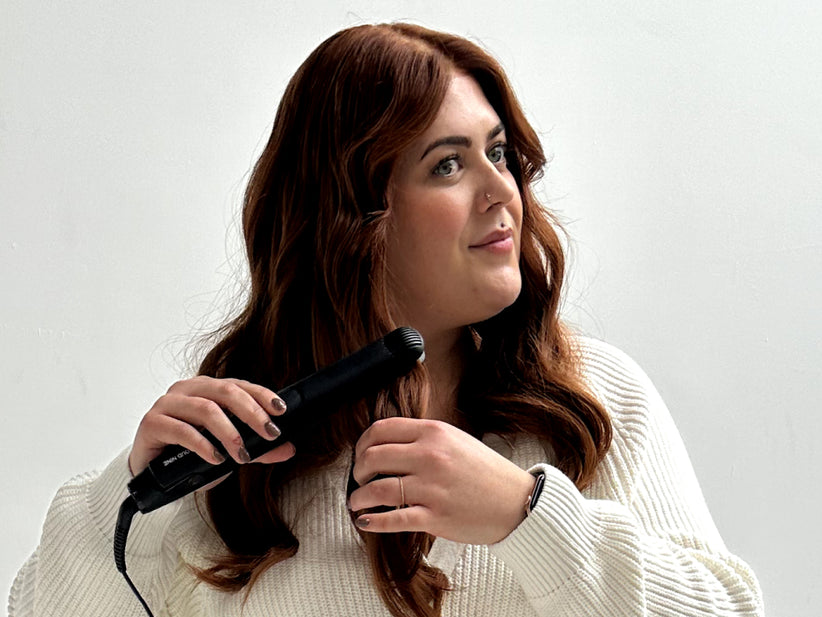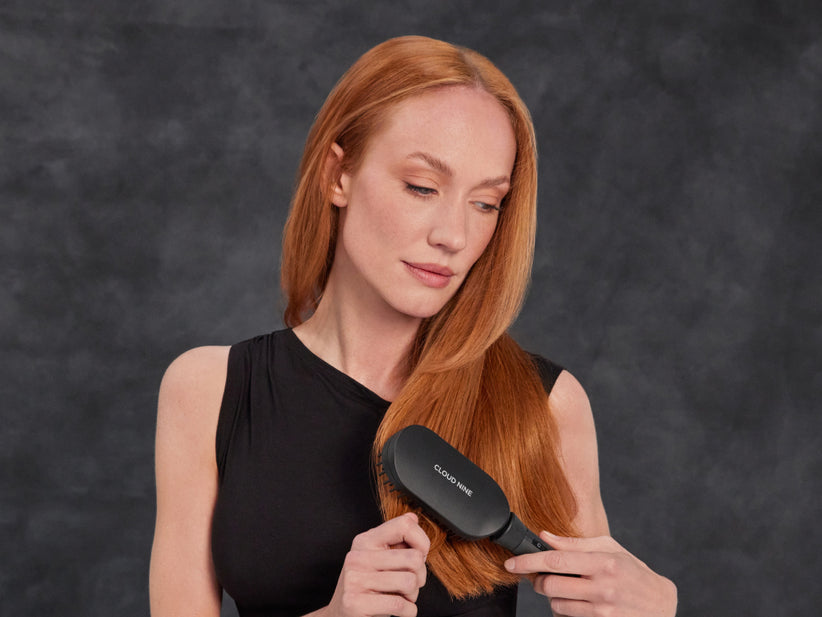From miracle frizz fixes to DIY remedies that promise to banish dandruff overnight, it’s easy to fall for the latest advice, especially when it’s everywhere online. With so much information (and mis-information) floating around, it’s perfectly normal to feel confused about what really works when it comes to haircare.
Whether you’re dealing with damage, dryness, flakes, frizz, or fading, everyone faces hair challenges from time to time. With the growing trend of home hair hacks, more and more people are turning their bathrooms into DIY salons. But which of these popular hacks are actually good for your hair? More importantly, could some of them be doing more harm than good? Let’s debunk some of the most common hair myths.
1. Is it true that straightening damages hair?
For many of us, it’s hard to imagine life without straighteners. From pin straight to gentle waves, the versatility of a high-quality pair of straighteners is unmatched. But understandably, there is some trepidation about using heat on your hair. It’s true that straightening at a temperature that’s too hot for your hair type can cause damage.
But straightening at a healthy heat can minimise damage, and maximise shine and hair health. CLOUD NINE straighteners are packed with expert healthy hair technology such as Revive ModeTM which uses Axial VibrationTM technology to vibrate the ceramic plates 8,000 times per minute to minimise heat contact with your hair.
Check out our Temperature Calculator to find the perfect heat for your hair type. Head to our blog to learn how to straighten your hair without damage.
2. Does cutting or trimming your hair make it grow faster?
This is one of those hair myths that seems to have been around forever, but unfortunately, it’s not true. Trimming your hair doesn’t actually speed up growth – it’s all happening at the scalp, not the ends.
Hair growth is controlled by your follicles, and trimming has no impact on how quickly your follicles produce new hair. However, regular trims are still important for keeping hair healthy. Cutting off split ends helps to prevent further breakage, so while your hair won’t grow faster, it will look fuller and healthier, which can give the illusion of faster growth.
Read our blog on hair growth for more expert advice.
3. Does washing hair in cold water really add shine?
It’s true that a blast of cold water at the end of a warm shower can do wonders for hair. Warm water opens the hair cuticles, helping to remove buildup and allowing hair products to absorb into the hair fibres. Once clean, a quick douse of cold water closes the hair cuticles to make detangling easier, leaving it shiny and less frizzy. So if you can stand a few seconds of cold water at the end of a shower, you may end up with shinier hair as a result.
4. Is it true that plucking grey or white hairs causes more to grow back?
This one’s a classic, but it’s not true. Plucking a grey hair doesn’t cause more grey hairs to sprout in its place. Each hair follicle is responsible for one strand of hair. When you pluck a grey hair, it only removes that single hair from that follicle. The follicle doesn’t suddenly decide to grow more grey hairs in response. It will grow a single new hair eventually, but not a new bunch of greys.
So why does it sometimes seem like more grey hairs pop up after plucking? It’s probably because you’re more aware of them now. When you start noticing those greys, you’re likely paying more attention and might spot them more easily. Plus, as we age, the number of grey hairs naturally increases, so you might just be noticing the natural changes in your hair’s colour and texture.
5. Does stress really cause grey hair?
The link between stress and greying hair isn’t as strong as you might think. While stress can have a lot of effects on our bodies, directly causing grey hair isn’t one of them.
Grey hair is primarily determined by genetics. As we age, our hair follicles produce less melanin, the pigment that gives hair its colour. This natural process is mostly out of our control and is more about your family history than your stress levels.
6. Is coconut oil good for grey hair?
You might have heard about using coconut oil for grey hair. While coconut oil is great for conditioning and nourishing hair, it won’t reverse greying or stop it. It’s a wonderful addition to your hair care routine (and leaves your hair smelling gorgeous), but it’s not a cure for grey strands.
If you’re curious about how to manage and embrace your greys, check out our guide to managing and caring for grey hair.
7. Is it true that nits and lice prefer clean hair?
Lice don’t have a preference for clean or dirty hair – they’re just looking for a warm human scalp to live on. What actually attracts lice is not how clean your hair is, but rather the close contact with someone who already has lice. They spread easily through head-to-head contact, which is why they’re common among children in schools or day care centres.
To prevent lice, the best approach is to minimise close contact with others who might have them and keep an eye on your hair and your children’s hair. Lice can be eradicated with special medicated shampoos and a nit comb – it’s not a pleasant job, but it’s the only way to get rid of them.
8. Is it true that dirty hair dyes better?
The idea behind this myth is that some people believe that natural oils and dirt on the hair can help the dye adhere better, but that’s not how it works.
In reality, the best condition for dyeing your hair is when it’s clean and free of products. Freshly washed hair allows the dye to penetrate the hair follicle more evenly and effectively because there are no barriers from oils, products, or dirt. This helps achieve a more consistent colour and prevents the dye from interacting with any residual build-up that might affect the final result.
Also, if you’re planning to style your hair after dyeing it, it’s a good idea to use lower heat settings. Dyeing can make your hair more vulnerable, so keeping styling tools at lower temperatures helps minimise heat damage and keeps your new colour looking vibrant for longer. All CLOUD NINE styling tools come with Variable Temperature Control as standard, so you can style your hair at the lowest – and kindest – temperature to keep your hair in optimum condition.
Check out our Temperature Calculator to help you discover the perfect temperature for your dyed hair.
9. Does coffee boost hair growth and colour?
The short answer is yes. It’s been scientifically proven that the antioxidants in coffee can have various benefits for hair, such as stimulating hair growth, preventing hair loss, and improving scalp health. Coffee can even provide a temporary colour boost. From store-bought coffee-infused shampoos to DIY coffee hair spritzes to using ground coffee as a scalp exfoliator, coffee has made a permanent move from the kitchen cupboard to the bathroom cabinet.
10. Is it true that washing your hair every day is bad for your hair?
Different hair types and scalp needs call for different washing routines. Washing hair daily can be great for removing sweat, oil, and product buildup, leaving you with a clean, fresh feeling – perfect if you're really active or use a lot of styling products.
But if you wash your hair too often, you might strip away its natural oils, which can lead to dryness and brittleness, particularly if your hair is curly or textured. Plus, frequent washing can mess with your scalp’s oil production, making it produce more oil and creating a cycle of greasiness.
For colour-treated hair, washing every day can speed up colour fading, and if your hair is dry or curly, washing less often is usually better to keep it moisturised. If you have ‘normal’ hair that’s not too dry or greasy, you might be fine with daily washing but could benefit from skipping a wash now and then to avoid dryness. The key is finding a routine that works best for your hair and scalp to keep them looking and feeling great.
11. Does creatine cause hair loss?
Creatine is a supplement that many people use to boost their workout performance and build muscle. The link between creatine and hair loss isn’t totally clear, but some studies suggest it might increase a hormone called dihydrotestosterone (DHT), which can be linked to hair loss if you’re genetically prone to it. But we need more research to really understand this connection. If you're curious about how nutrition and supplements might affect your hair, take a look at our nutrition blog for more details.
12. Does rice water help hair growth?
For centuries, rice water has been used in various cultures to help with hair care. The idea is that it’s packed with nutrients like vitamins and amino acids that could potentially strengthen your hair. Some small studies and lots of personal stories suggest it might boost hair health and growth, but we don’t have strong scientific proof yet. Discover the latest hair hacks and online trends.
13. Does brushing my hair make it shinier?
Brushing your hair doesn’t always make it shinier. Too much brushing can actually damage your hair due to friction. For curly hair, it’s better to brush it when it’s wet or in the shower to avoid frizz and breakage – try the CLOUD NINE Wet Hairbrush to detangle wet hair.
For thicker, straight hair, brushing in sections can help detangle without too much damage – our Luxury Dressing Brush is perfect for brushing your hair before, during and after styling with a heated tool. If you’re aiming for a super sleek look, try the CLOUD NINE Original Hot Brush which is designed to smooth and reduce frizz with minimal breakage.
14. Does going outside with wet hair increase the risk of getting poorly?
The idea that going outside with wet hair will make you poorly is just a myth. Getting ill is actually about viruses, not being cold or wet. If you’re worried about keeping your hair healthy in colder weather, check out our cold weather hair blog for tips.
15. Is it true that lemon juice can lighten hair?
Lemon juice can provide a low-cost, quicker alternative to salon highlights. Lemon juice contains a natural bleaching agent, and when paired with sunshine, it can help to lighten hair. However, lemon juice can be dehydrating and leave hair with a strong citrus aroma, so we recommend washing your hair as soon as the lemon juice has dried. You should also be wary if you have a sensitive scalp, as it could cause irritation.
16. Can onion juice really help with hair growth?
Onion juice is a popular home remedy for hair growth because it’s thought to boost circulation and provide nutrients that benefit hair health. The scientific evidence is limited, but some believe it can help by adding sulphur, which supports strong hair and may boost collagen production. Collagen helps in producing healthy skin cells and encouraging hair growth. If you’re into natural remedies, it might be worth a try, but results can vary.
17. Is it true that cutting or dyeing hair during pregnancy affects the baby?
There’s a long-standing myth that cutting or dyeing your hair during pregnancy can harm your baby, but this is completely untrue. While it’s true that the chemicals in permanent and semi-permanent dyes could be harmful in large quantities, the amounts you’re exposed to when dyeing your hair are extremely low.
Most experts agree it’s generally safe to colour your hair during pregnancy, though it’s always a good idea to check with your doctor for peace of mind. If you’ve noticed changes in your hair’s texture or growth, that’s likely down to pregnancy hormones, which can affect your hair in surprising ways.
For more on how hormones can impact your body during pregnancy, learn how hormones affect your hair.
18. Does a double crown lead to baldness?
Having a double crown doesn’t mean you’ll go bald. It might make it look like you have less hair in that area, but it doesn’t signal future baldness. Many people with double crowns have thick, healthy hair.
19. Is it true that hair shouldn’t be washed straight after a perm?
As your hairdresser will tell you, washing too soon after a perm can weaken the curls and mess with the results. After getting a perm, it’s best to wait 48 hours before washing your hair to help the curls set properly and make sure your gorgeous curls last longer.
20. Does smoking cause hair loss?
Yes, smoking can affect your hair growth by reducing blood flow to the scalp and introducing toxins that can harm hair follicles, leading to hair loss. For more on how lifestyle choices impact hair health, learn how nutrition can affect hair loss.
21. Is it kinder to dry curly hair with a T-shirt?
You may have heard that ‘plopping’ natural curls with a T-shirt instead of a towel can reduce friction and damage to hair strands, reducing split ends. This is true as the harsher texture of regular bath towels can cause friction and can easily get caught on the coils of natural hair.
For best results, squeeze excess water out by hand, then turn a dry T-shirt upside down and enter your head and hair through the neckline, wrapping the body of the T-shirt around your hair. Then give your hair a gentle squeeze and unwrap after 15-20 minutes for perfectly towel-dried hair. If you don’t have a T-shirt to hand, it’s still fine to use a normal towel to dry your hair as long as you’re gentle.
22. Can I use a mayonnaise hair mask to moisturise my hair?
Mayonnaise can be used as a hair mask because it contains oils and egg yolks that help moisturise and nourish your hair. The oils mimic your hair’s natural oils, and the egg yolks provide proteins and vitamins. But if mayo isn’t your thing, other kitchen staples like coconut oil or avocado can also be great for your hair.


.jpg?v=1724142040589)


.jpg?v=1724140515432)
